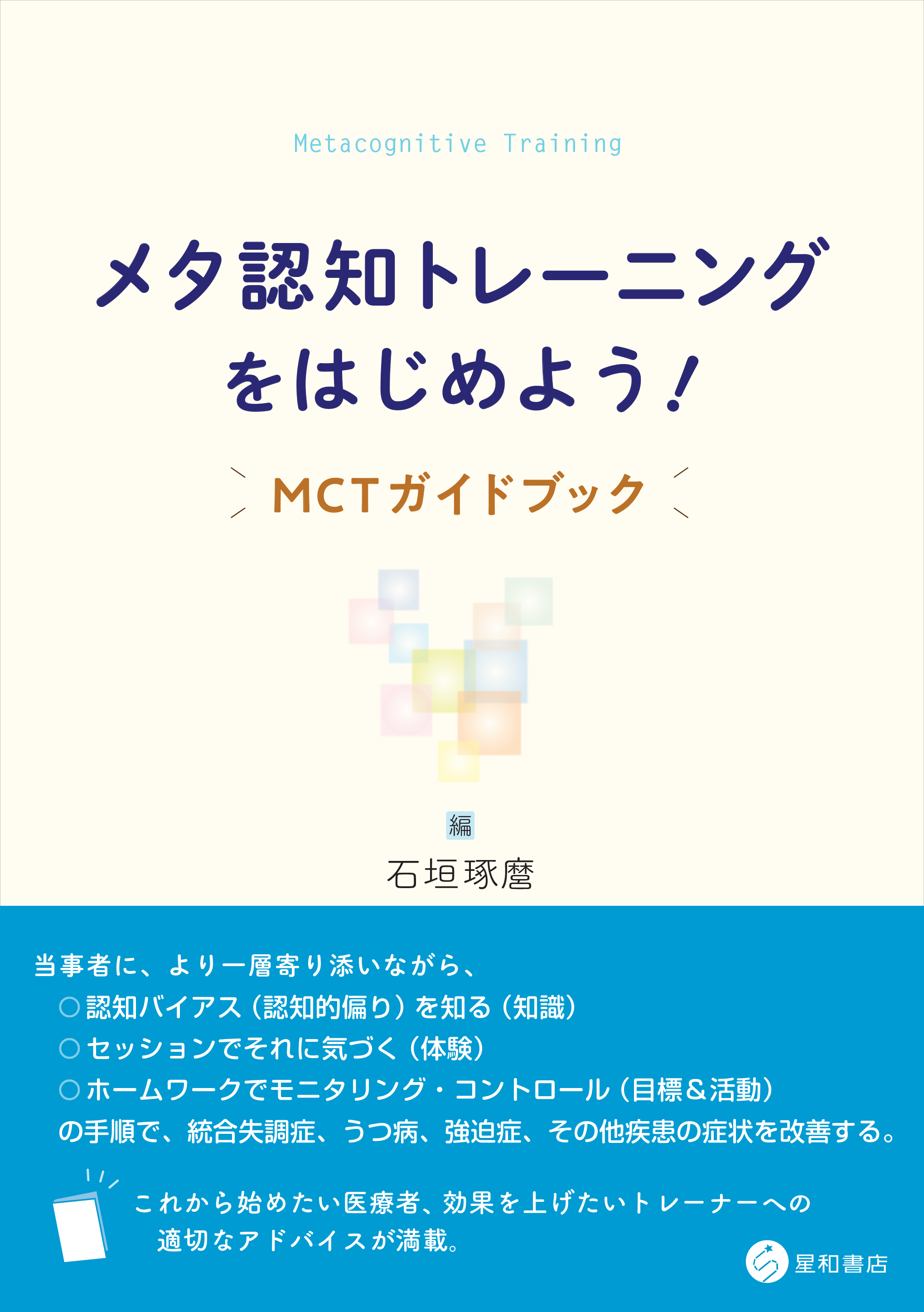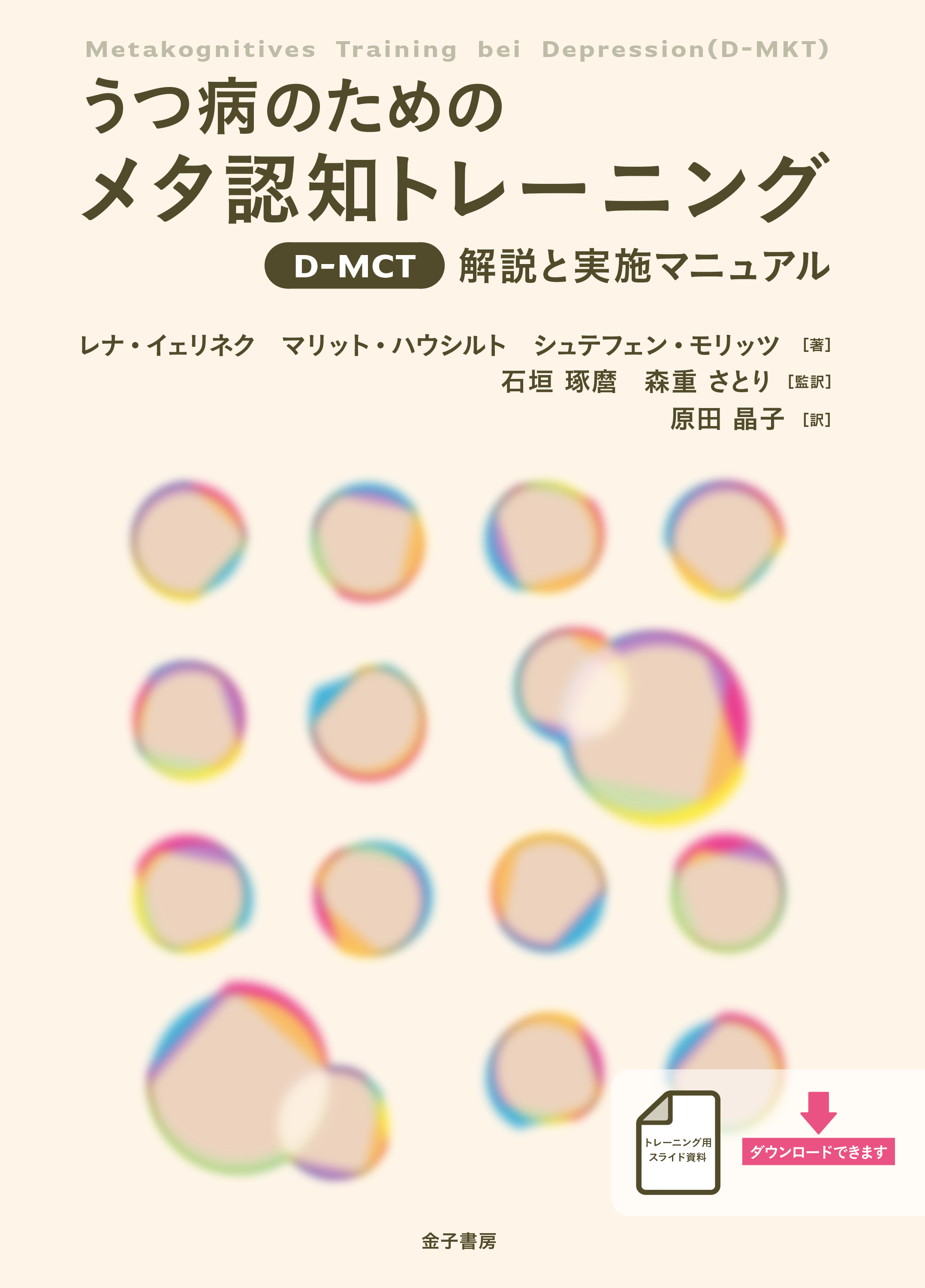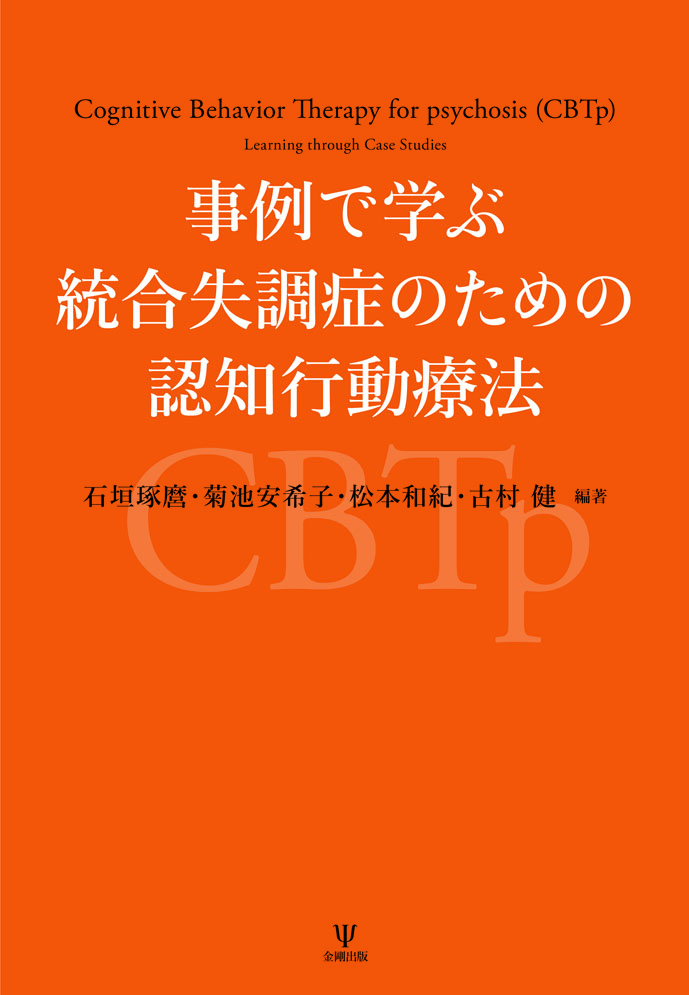
Title
Meta-Ninchi Training o Hajimeyo! (Getting Started with Metacognitive Training - MCT Guidebook)
Size
312 pages, A5 format, softcover
Language
Japanese
Released
April 29, 2022
ISBN
978-4-7911-1095-7
Published by
Seiwa Shoten Publishers
Book Info
Japanese Page
Metacognitive training (MCT) is a psychotherapy and psychoeducation method that was developed by Professor Steffen Moritz and others at the University of Hamburg in Germany. I introduced MCT to Japan in 2012, and it has now developed into the MCT-J Network (http://mct-j.jpn.org/), which is a general incorporated association with over 1,700 members.
The target for MCT was originally limited to schizophrenia, but it has now expanded to include other illnesses such as depression (D–MCT), borderline personality disorder (B–MCT), and obsessive-compulsive disorder (myMCT & MCT-OCD). A unified principle of MCT for any mental illness is to notice the bias in cognition that exists in the background of the mental symptoms and is one of the factors that exacerbates symptoms (i.e., cognitive bias), and allows the participants to correct it themselves. However, the cognitive biases can differ somewhat between different illnesses and symptoms, so this is covered by the variations in MCT content.
Mental work such as memory and judgment is referred to as cognitive function, and research has shown that these are poorly controlled or used in extreme ways in many mental illnesses. This bias in cognitive function is what is referred to as cognitive bias. Some cognitive biases are known to be present in healthy people as well.
Metacognition is broadly defined as “cognition about cognition.” The metacognition that is targeted by MCT includes knowledge on cognitive function and cognitive bias (metacognitive knowledge), the realization that cognitive bias exists in oneself and others (metacognitive experience), and self-monitoring and correction of one’s own cognitive function and cognitive biases (metacognitive activity). The practice of these three metacognitive elements through group discussion and homework is what constitutes MCT. Some people with mental illness dislike directly discussing their symptoms or admitting that they are mentally unwell, and they tend to reject psychotherapy and psychoeducation. MCT not only clears this hurdle by dealing with the cognitive biases that exist in every person, but it also has mechanisms for increasing motivation to participate.
One of the strengths of MCT is that it can be applied to any occupation once the principles are learned. As proof, the authors of this book include psychiatrists, nurses, clinical psychologists, occupational therapists, and psychiatric social workers; almost all of the professional fields that are involved in psychiatric care in Japan are included. As the editor, I am very pleased to have been able to collaborate with people from such a wide range of occupations who are passionate about the development of psychiatric care. Another feature of this book is not only its role as a book on the theory of MCT but also its explanation of specific methods for introducing MCT into general psychiatric clinical practice in Japan and raising its effectiveness based on the authors’ actual experiences. It is hoped that this book will further deepen the reader’s understanding of the cognitive-behavioral theory of MCT and mental illness.
(Written by ISHIGAKI Takuma, Professor, Graduate School of Arts and Sciences / 2022)



 Find a book
Find a book



